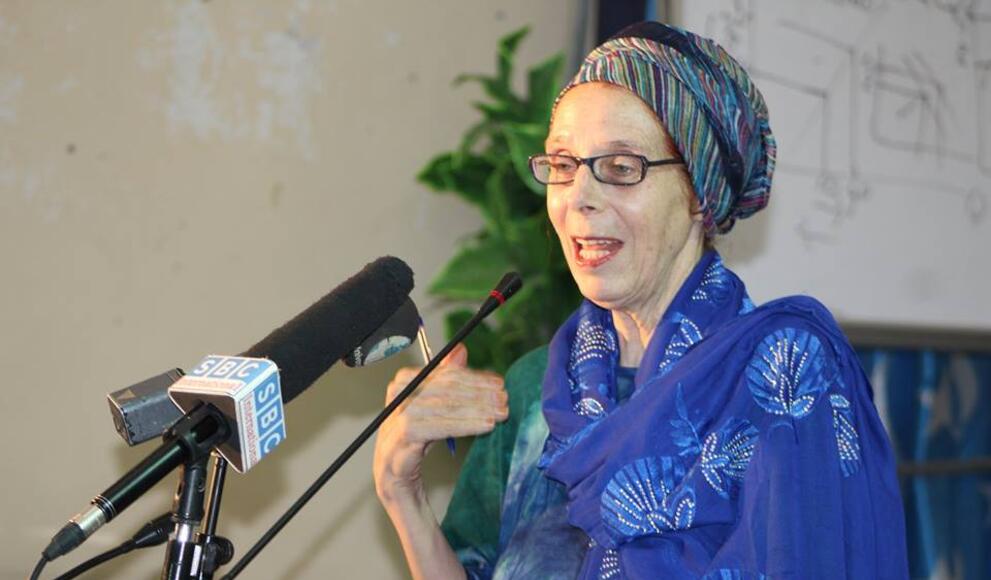Professor Lidwien Kapteijns Paid Her First Visit to Somalia Since Before the Collapse of the State in 1991

Lidwien Kapteijns, Elizabeth Kimball Kendall and Elisabeth Hodder Professor of History, gave a keynote address at Uganda’s Makerere University's Institute for Social Research graduate student conference this summer. While visiting the region, she also spoke at the Garowe International Book Fair in Puntland, Somalia. It was her first visit to Somalia since before the collapse of the state in 1991.
“It was a very interesting experience. I found academics, directors of research and development centers, and professional people, many of whom have spent years in North America or Europe as refugees or children of refugees, very welcoming and open to intellectual exchange,” she said. “This was most especially true for the students of the various universities, whose resources are so much more limited than what we have at Wellesley.”
Kapteijns’ keynote at the graduate student conference in Uganda sought to engage the participants in a conversation about whether—and if yes, how—to make the moral-political context in which they research and write matter. At the Book Fair in Garowe, she presented in Somali on Somali literature about and by women.
The Garowe Book Fair is designed to promote the reading and writing of books in Somali, a language the United Nations (UN) has declared endangered. Kapteijns said that Somali is endangered “not because it is dying out at the level of common people's speech, but because the major institutions operating in Somali, and setting standards for Somali orthography and grammar, were destroyed in the civil war.”
While in Garowe, Kapteijns also spoke at the Peace and Development Research Center and met with people who experienced the clan cleansing campaign of 1991-1992, which is the main subject of her book, Clan Cleansing in Somalia: The Ruinous Legacy of 1991 (University of Pennsylvania Press: Human Rights Series, 2013). “Apart from sharing some of their individual experiences, they also reflected on why, until now, so few victims have written about what happened when warlords turned an armed rebellion against a criminally oppressive military regime into campaign of terror warfare and expulsion targeting common people of particular clan backgrounds,” she said.
Kapteijns will teach a research seminar this spring about historical occurrences of large-scale violence against civilians targeted on the basis of their ethnic or religious backgrounds. The seminar explores the challenges of living in the aftermath of violence for those who survived as well as perpetrators and their associates.
From her recent trip, Kapteijns said the most significant insight she will bring to her teaching is “the forward-looking, dynamic realism” she saw in Puntland and “the optimistic commitment to rebuilding from the bottom up in circumstances rightly portrayed by the media as very challenging.”
She said also took a lighter lesson away from her travels. She learned that goats can walk over a parked car without doing any damage and offered this advice: “Do not get between a goat and food scraps.”
Kapteijns, who is known to many Somalis as Professor Ladan, is an African historian focusing on Somalia and Sudan. Her long-term research and teaching focus is on African, Islamic, and Middle Eastern history. She is also translator of historical and popular culture texts in Arabic and Somali.
